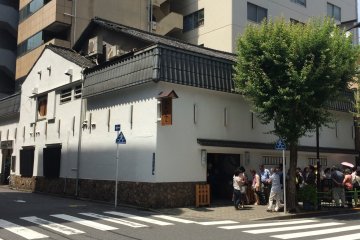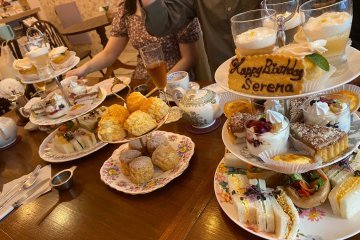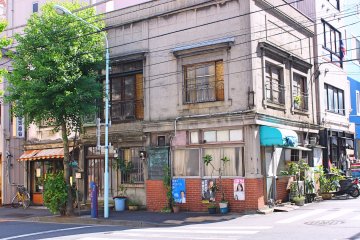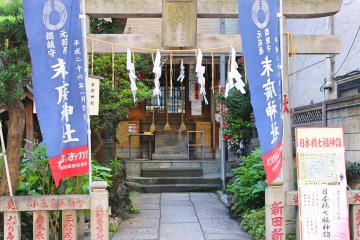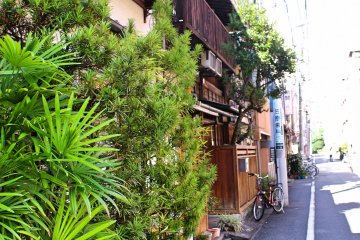Ningyo-cho (ningyo- doll, cho- town in Japanese) used to be a lively neighbourhood of doll makers, puppeteers, and puppet theaters and was known as the doll district. About 400 years ago in Edo era Ningyocho was the birthplace of Edo Kabuki theater.
Some of Ningyocho events still bring back the memories of old Edo days. One of them is the Doll Market which takes place in November in Ningyocho Oodori Avenue. Why such a big fuss about dolls? In Japan dolls are no ordinary toys. People believe them to have souls. Ningyo written in kanji characters means "human shape". Dolls are a big part of Japanese culture. They have played a significant role in people's lives for centuries. The Japanese have used them to get rid of misfortune such as illness or injury. When a person passed away, a ceremony was held to comfort the souls of unwanted dolls, left without their owner. At Oogannon-ji temple near Ningyo-cho station, similar ceremonies are still performed.
From Ningyocho Station towards Meiji-za, the oldest theatre in Tokyo, there is a 400 meter long alley called Amazake Yokocho. The name is derived from the sweet fermented rice drink. At the beginning of Meiji era there was a popular shop called Owari-ya at the alley entrance, which sold the best amazake in the neighbourhood. Nowadays the small street is filled with various restaurants and stores selling traditional crafts.
A stroll through Ningyocho streets is also about discovering small hidden temples and shrines. The most popular one is Yegenbori Fudo Temple, one of the three great Fudo temples of Edo. This is where longevity and wealth are worshipped. Suitengu Shrine is also famous, for people praying for pregnancy and safe childbirth. This shrine is a representative of Nihonbashi Seven Deities of Good Fortune.
Ningyocho is a perfect place for those who have time to wander through small alleys and check out little shops and local bars. The neighborhood charms immediately and it has a typical Shitamachi atmosphere. When visiting Ningyocho do not forget to try ningyo-yaki, sweet handmade cakes in a shape of seven deities of good fortune. It is said that they were first created in Ningyocho. They are a great souvenirs to bring back home!



